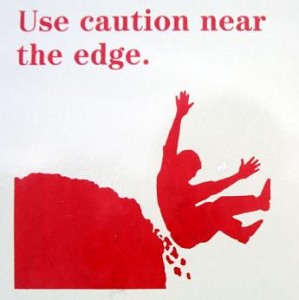 Are you scared? No? Then you must not be paying attention.
Are you scared? No? Then you must not be paying attention.
You must be living somewhere without electricity or access to the Internet. (Which of course means you’re not reading this.)
So if you’re reading this I’m betting that you’re right there with everyone else. Scared to the point of numb as you see your retirement, savings, personal finance and everything else that once had a value in dollars disappear literally over night.
I see a new MasterCard ad.
Retirement savings portfolio: Zero dollars. Home equity: Zero dollars. U.S. Government’s Social Security payments: Zero dollars.
A secure store room with water, canned goods, and ammo?
Priceless.
So here’s my question.
Has the increased velocity of news and information helped accelerate the meltdown? Are we so surrounded now with an incessant barrage of bad news that new media is helping push us over the edge into crazed panic?
Or has the ubiquity of instant information beeen a break on what would otherwise by now have been a complete implosion of economic activity?
Is there ANY relationship between the historic meltdown of the stock market and new media?
Aaron Brazell had it right. “Fear breeds a lack of confidence. A lack of confidence breeds fear.”
And the interconnectedness of the new media means that ANYTHING — including fear — can be transmitted easier, quicker, and cheaper.
 So the quote in Bloomberg.com reads:
So the quote in Bloomberg.com reads:
“This is what happens when the contagion of fear spreads,” said Quincy Krosby, who helps manage about $380 billion as chief investment strategist at the Hartford in Hartford, Connecticut. “No one is paying attention to fundamentals. People are very, very scared. Ultimately investors decide to sell.”
Used to be bad news was confined to the newspapers. Now it follows me on my cell phone. This is the flip side of the all the benefits of new media. YOU CAN’T GET AWAY FROM IT!
Almost makes you yearn for the town cryer. Or just yearn to cry.